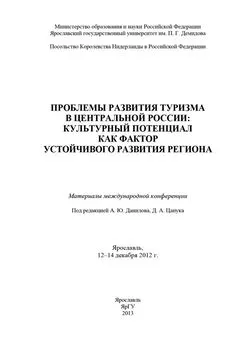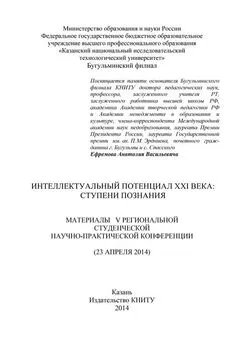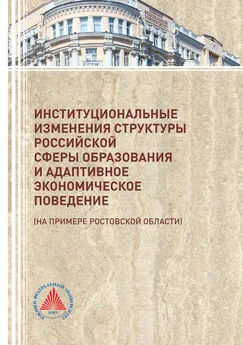Коллектив авторов - Личностный потенциал. Структура и диагностика
- Название:Личностный потенциал. Структура и диагностика
- Автор:
- Жанр:
- Издательство:Смысл
- Год:2011
- Город:Москва
- ISBN:978-5-89357-28
- Рейтинг:
- Избранное:Добавить в избранное
-
Отзывы:
-
Ваша оценка:
Коллектив авторов - Личностный потенциал. Структура и диагностика краткое содержание
Коллективная монография охватывает широкий круг вопросов психологии личности через призму новой концепции личностного потенциала – системы характеристик личности, лежащих в основе успешной саморегуляции в различных сферах жизнедеятельности.
Адресуется психологам.
Личностный потенциал. Структура и диагностика - читать онлайн бесплатно ознакомительный отрывок
Интервал:
Закладка:
Bonanno G.A Loss, trauma and human resilience: Have we underestimated the human capacity to thrive after extremely aversive events? // American Psychologist. 2004. Vol. 59 (1). P. 20–28.
Bonnano G.A. Clarifying and extending the construct of adult resilience // American Psychologist. 2005. Vol. 60 (3). P. 265–267.
Caza A., Bagozzi R.P., Woolley L., Levy L., Caza, B.B. Psychological capital and authentic leadership // Asia-Pacific Journal of Business Administration. 2010. Vol. 2. № 1. P. 53–70.
Clampitt P.G., Williams M.L. Managing organizational uncertainty: Conceptualization and measurement // Paper presented at the international, communication association conference. San Diego (CA), 2000.
Clapp-Smith R., Vogelgesang G.R., Avey J.B. Authentic leadership and positive psychological capital: the mediating role of trust at the group level analysis // Journal of Leadership & Organizational studies. 2009. Vol. 15. P. 227–240.
Clarke D.E. Vulnerability to stress as a function of age, sex, locus of control, Hardiness and Type A personality // Social Behavior and Personality. 1995. Vol. 23. № 3. P. 285–286.
Cole K. Wellbeing, Psychological capital, and Unemployment: an Integrated Theory // Unprinted paper, 2006.
Cole K., Daly A., Mak A. Good for the soul: The relationship between work, wellbeing and psychological capital // The Journal of Socio-Economics. 2009. Vol. 28. P. 464–474.
Coutu D.L. How resilience works // Harvard Business Review. 2002. May. P. 46–55.
Culbertson S., Fullagar C.J., Mills M.J. Feeling good and doing great: The relationship between psychological capital and well-being // Journal of Occupational Health Psychology Vol. 15. № 4. P. 421–433. 2010.
Deci E.L. The psychology of self-determination. Toronto: Lexington books, 1980.
Deci E.L., Connell J.P., Ryan R.M. Self-Determination in a Work Organization // Journal of Applied Psychology. 1989. Vol. 74. № 4. P. 580–590.
Deci E.L., Eghrari H., Patrick B.C., Leone D.R. Facilitating internalization: The self-determination theory perspective // Journal of Personality. 1994. Vol. 62. P. 119–142.
Deci E.L., Ryan R.M. The General Causality Orientation Scale: self-determination in personality // Journal of Personality. 1985. Vol. 19. P. 109–134.
Deci E.L., Ryan R.M. The support of autonomy and control of behavior // Journal of Personality and Social Psychology. 1987. Vol. 53. P. 1024–1037.
Deci E.L., Ryan R.M., Gagné M., Leone D.R., Usunov J., Kornazheva B.P. Need Satisfaction, Motivation, and Well-Being in the Work Organizations of a Former Eastern Bloc Country: A Cross-Cultural Study of Self-Determination // PSPB. 2001.Vol. 227. № 8. P. 930–942.
Fernet, C., Guay, F., Senécal, C . Adjusting to job demands: The role of work self-determination and job control in predicting burnout // Journal of Vocational Behavior, 65. P. 39–56. 2004.
Florian V., Mikulincer M., Taubman O. Does hardiness contribute to mental health during a stressful real-life situation? The roles of appraisal and coping // Journal of Personality and Social Psychology. 1995. April. Vol. 68 (4). P. 687–695.
Frederickson B.L. The role of positive emotions in positive psychology: the broaden-and-built theory of positive emotions // American Psychologist. 2001. Vol. 56 (3). P. 218–226.
Frendenberger, H.J. Staff burn out // Journal of social sciences. 30. P. 159–165. 1974.
Gagné M., Deci E.L. Self-determination theory and work motivation // Journal of Organizational Behavior. 2005. Vol. 26. P. 331–362.
Gagné M., Koestner R., Zuckerman M. Facilitating Acceptance of Organizational Change: The Importance of Self-Determination // Journal of Applied Social Psychology. 2000. Vol. 30. № 9. P. 1843–1852.
Goleman D. What makes a leader? // Harvard Business Review. 1998. November-December. P. 93—102.
Gollwitzer P.M . Action phases and mind-sets // Handbook of motivation and cognition: Foundations of social behavior / E.T. Higgins, R.M. Sorrentino (Eds.). N.Y.: Guilford, 1990. Vol. 2. P. 53–92.
Hamel G., Valikangas L. The quest for resilience // Harvard Business Review. 2003. September. P. 51–63.
Hind P., Frost M., Rowley S. The resilience audit and the psychological contract // Journal of Managerial Psychology. 1996. Vol. 11 (7). P. 18–29.
Hobfoll S.E. Conservation of resources: A new attempt at conceptualizing stress // American Psychologist. 1989. Vol. 44. P. 513–524.
Hofstede G.J. Cultures and Organizations: Software of the Mind. N.Y.: McGraw-Hill, 1997.
Huang C. Hardiness and stress: A critical review // Maternal-Child Nursing Journal. 1995. July-September. Vol. 23. № 3. P. 82–89.
Hunt J.G. Transformational/charismatic leadership’s transformation of the field: an historical essay // Leadership Quarterly. 1999. Vol. 10. P. 129–144.
Jensen S. Luthans F. Relationship between Entrepreneurs’ Psychological capital and Their Authentic Leadership // Journal of Managerial Issues. 2006. Summer. Vol. 18. № 2. P. 254–273.
Knee C.R., Zuckerman M. Causality Orientations and the Disappearance of the Self-Serving Bias // Journal of Research in Personality. 1996. Vol. 30. P. 76–87.
Kobasa S.C. Stressful life events, personality and health: An inquiry into hardiness // Journal of Personality and Social Psychology. 1979. Vol. 42. P. 168–177.
Koestner R., Gingras I., Abutaa R., Losier G.F., DiDio L., Gagné M. To Follow Expert Advice When Making a Decision: An Examination of Reactive Versus Reflective Autonomy // Journal of Personality. 1999. Vol. 65:5. P. 851–872.
Lam C.F., Gurland S.T. Self-determined work motivation predicts job outcomes, but what predicts self-determined work-motivation? // Journal of Research in Personality. 2008. Vol. 42. P. 1109–1115.
Lane M.S., Klenke K. The ambiguity tolerance interface: A modified social cognitive model for leading under uncertainty // Journal of Leadership & Organizational Studies. 2004. Winter. Vol. 10. № 3. P. 69.
Luthans F. Positive organizational behavior: Developing and managing psychological strengths // Academy of Management Executive. 2002. Vol. 16. P. 57–72.
Luthans F., Avey J.B., Avolio B.J., Norman S.M., Combs G.M.. Psychological capital development: toward a micro-intervention // Journal of Organizational Behavior. 2006. Vol. 27. P. 387–393.
Luthans F., Avolio B.J. Authentic leadership: a positive developmental approach // Positive Organizational Scholarship / K.S. Cameron, J.E. Dutton, R.E. Quinn (Eds.). San Francisco (CA): Barrett-Koehler, 2003. P. 241–261.
Luthans F., Luthans L.K., Luthans B.C. Positive psychological capital: Beyond human and social capital // Business Horizons. 2004. Vol. 41 (1). P. 45–50.
Luthans F., Vogelgesang G.R., Lester P.B. Developing the Psychological Capital of Resiliency // Human Resource Development Review. 2006. March. Vol. 5. № 1. P. 25–44.Luthans F., Youssef C.M. Human, social, and now positive psychological capital management: Investing in people for competitive advantage // Organizational Dynamics. 2004. Vol. 33/2.
Luthans F., Youssef C.M., Avolio B.J. Psychological capital. Oxford: Oxford University Press. 2007.
Luthar S.S., Cicchetti D. The construct of resilience: Implications for interventions and social policies // Development and Psychopathology. 2000. Vol. 12 (4). P. 857–885.
Luthar S.S., Cicchetti D., Becker B. The construct of resilience: A critical evaluation and guidelines for future work // Child Development. 2000. Vol. 71. P. 543–562.
Maddi S. Hardiness: An Operationalization of existential Courage // Journal of Humanistic Psychology. 2004. Summer. Vol. 44. № 3. P. 279–298.
Maddi S.R., Khoshaba D.M. Resilience at work: How to succeed no matter what life throws at you. N.Y.: AMACOM, 1984.
Maddi S.R., Khoshaba D.M . Hardiness and Mental Health // Journal of Personality Assessment. 1994. October. Vol. 63. № 2. P. 265–274.
Masten A.S. Resilience in individual development: Successful adaptation despite risk and adversity / Educational resilience in inner-city America: Challenges and prospects / M.C. Wang, E.W. Gordon (Eds.). Hillsdale (NY): Lawrence Erlbaum, 1994. P. 3—25.
Masten A.S. Ordinary magic: Resilience processes in development // American Psychologist. 2001. Vol. 56. P. 227–239.
Masten A.S., Reed M.-G.J. Resilience in development / Handbook of positive psychology / C.R. Snyder, S. Lopez (Eds.). Oxford, 2002. P. 74–88.
Mayer J.D., Salovey P. What is Emotional Intelligence? // Emotional development and Emotional Intelligence: Implications for Educators / P. Salovey, D. Sluyter (Eds.). N.Y.: Basic Books, 1997. P. 3—34.
McCormick M.J. Self-efficacy and leadership effectiveness: Applying social cognitive theory to leadership // The Journal of Leadership Studies. 2001. Vol. 8. P. 22–33.
McLain D.L. The MSTAT-I: A new measure of an individual’s tolerance for ambiguity // Educational and Psychological Measurement. 1993. Vol. 53. P. 183–189.
McMurray A.J., Pirola-Merlo A., Sarros J.C., Islam M.M. Leadership, climate, psychological capital, commitment, and wellbeing in a non-profit organization // Leadership & Organization Development Journal. 2010. Vol. 31. № 5. P. 436–457.
Ong A.D., Bergeman C.S., Bisconti T.L., Wallace K.A. Psychological resilience, positive emotions, and successful adaption to stress in later life // Journal of Personality and Social Psychology. 2006. Vol. 91(4). P. 730–749.
Reivich K., Shatte A. The resilience factor: 7 keys to finding your inner strength and overcoming life’s hurdles. N.Y.: Broadway Books, 2002.
Rhodewalt F., Agustsdottir S. On the relationship of hardiness to the Type A behavior pattern: Perception of life events versus coping with life events // Journal of Research in Personality. 1989. June. Vol. 18. № 2. P. 211–223.
Richardson G.E. The meta-theory of resilience and resiliency // Journal of Clinical Psychology. 2002. Vol. 58. P. 307–321.
Rush M.C., Schoael W.A., Barnard S.M. Psychological resiliency in the public sector: «Hardiness» and pressure for change // Journal of Vocational Behavior. February. 1995. Vol. 46 (1). P. 17–39.
Ryan R.M., Koestner R., Deci E.L. Varied forms of persistence: When free-choice behavior is not intrinsically motivated // Motivation and Emotion. 1991. Vol. 15. P. 185–205.
Seligman M.E.P. Learned optimism. N.Y.: Pocket books, 1998.
Shamir B., House R.J., Arthur M.B. The motivational effects of charismatic leadership: a self-concept based theory // Organization Science. 1993. Vol. 4. P. 1—17.
Sheppard J.A., Kashani J.H. The Relationship of Hardiness, Gender, and Stress to Health Outcomes in Adolescents // Journal of Personality. 1991. December. Vol. 59. № 4. P. 747–768.
Siebert A. The Survivor Personality. N.Y.: Perigee Books; Berkley Publishing Group, 1996.
Siebert A. The Resiliency Advantage: Master Change, Thrive Under Pressure, and Bounce Back from Setbacks. Portland (Or): The Practical Psychology Press, 2005.
Sternberg R.J. Successful Intelligence. N.Y.: Simon & Schuster, 1996.
Stoltz P.G. Adversity quotient: Turning obstacles into opportunities. N.Y.: Wiley, 1997.
Читать дальшеИнтервал:
Закладка:










